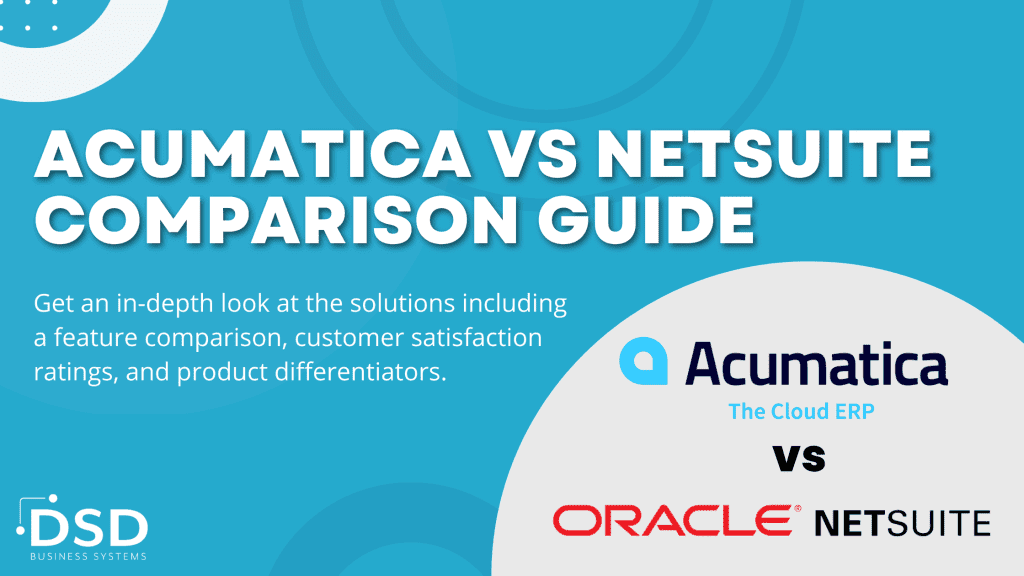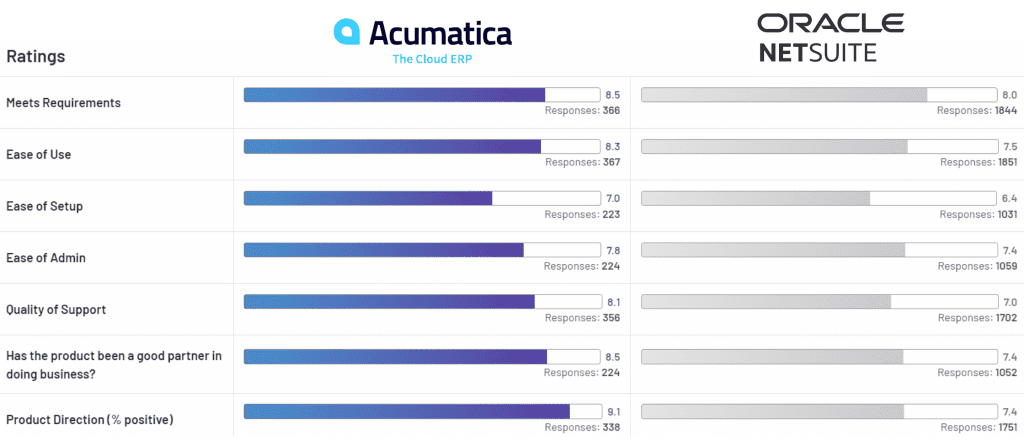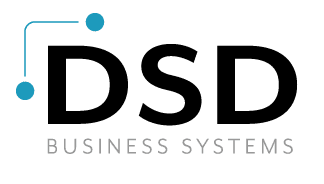Acumatica vs NetSuite: Features, Ratings, and Differentiators
March 28, 2023
by Jared Bollier, Digital Marketing Assistant

A crucial choice that will have long-term effects on your business is purchasing a new ERP system. If you’ve done your research, you’ve likely come across contradictory data. The choice for many companies boils down to an Acumatica. vs Netsuite comparison. That’s why we’ve put together a list of features, customer satisfaction, and differentiators to help with your decision.
Solution Backgrounds
Established in 1998, NetSuite went public in 2007 and was acquired by Oracle in 2016. Written before many of the latest web technologies were standardized, Oracle NetSuite continues to be limited in their deployment options, their customization language, and their database export capabilities.
Conversely, Acumatica was designed from the start to be accessible both through the cloud and on-premises using modern web technology. The solution offers access to data anytime, flexible licensing options, and no cost for adding users, lowering your company’s TCO.
Feature Comparison
Functionality
Acumatica
Oracle Netsuite
True cloud* (built for cloud)
True mobility (supports all devices with no special apps)
Full function ERP
Full relational database export
Customization using industry standard tools
Upgrade on your schedule
Flexible licensing options based on customer requirements
Multiple deployment options
Scale as you grow
Superior Return on Investment (ROI)
Product Differentiators
Full relational database export
NetSuite users can't directly export data in a relational format, making it difficult to migrate data. Acumatica never holds data hostage – both the built-in automated backup service plus the snapshot feature allow users to have a fully relational copy of data.
Customizations using industry standard tools
Both products are highly configurable, but Acumatica is built using industry standard C# and .NET. Oracle NetSuite uses proprietary development tools, making customizations more difficult.
Upgrade on your schedule
To support their required multi-tenant model, Oracle NetSuite limits when users can choose to update their software. Acumatica provides users the option to upgrade at any time they choose; Oracle NetSuite charges users for this option.
Multiple deployment options
While both products are available in the cloud, Acumatica also supports on-premises and hybrid deployments for companies that want to keep sensitive data in-house.
Flexible licensing options
Both products are available through public cloud subscription licensing (SaaS), but Acumatica also offers alternate options to accommodate customers’ unique requirements. Check Acumatica ERP Pricing.
TCO
Both products charge by computing resources consumed, but Oracle NetSuite also charges per user. These costs increase as your company grows, increasing your total cost of ownership over time.
Acumatica vs Netsuite Customer Satisfaction
Customer satisfaction is a key component of comparing software. It’s important to know how users feel about a product after using it, not just during the sales process. Below is a comparison from G2 that compares each solution’s key customer satisfaction ratings.

Overall, Acumatica Cloud ERP offers several advantages over Oracle NetSuite, including a more diverse feature set, more customization options, and a more modern user interface. Additionally, Acumatica has a reputation for excellent customer support and a strong commitment to innovation and development.







